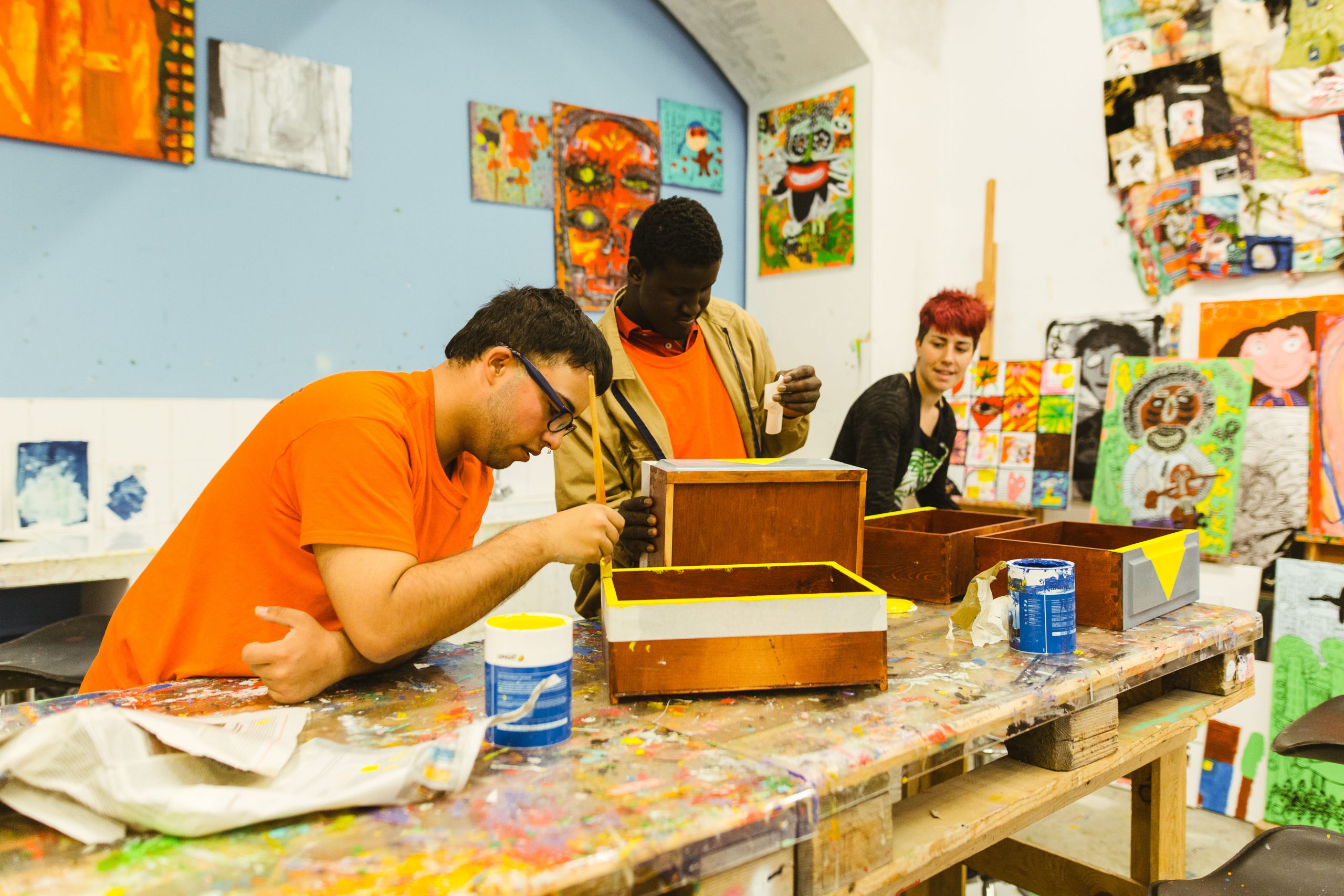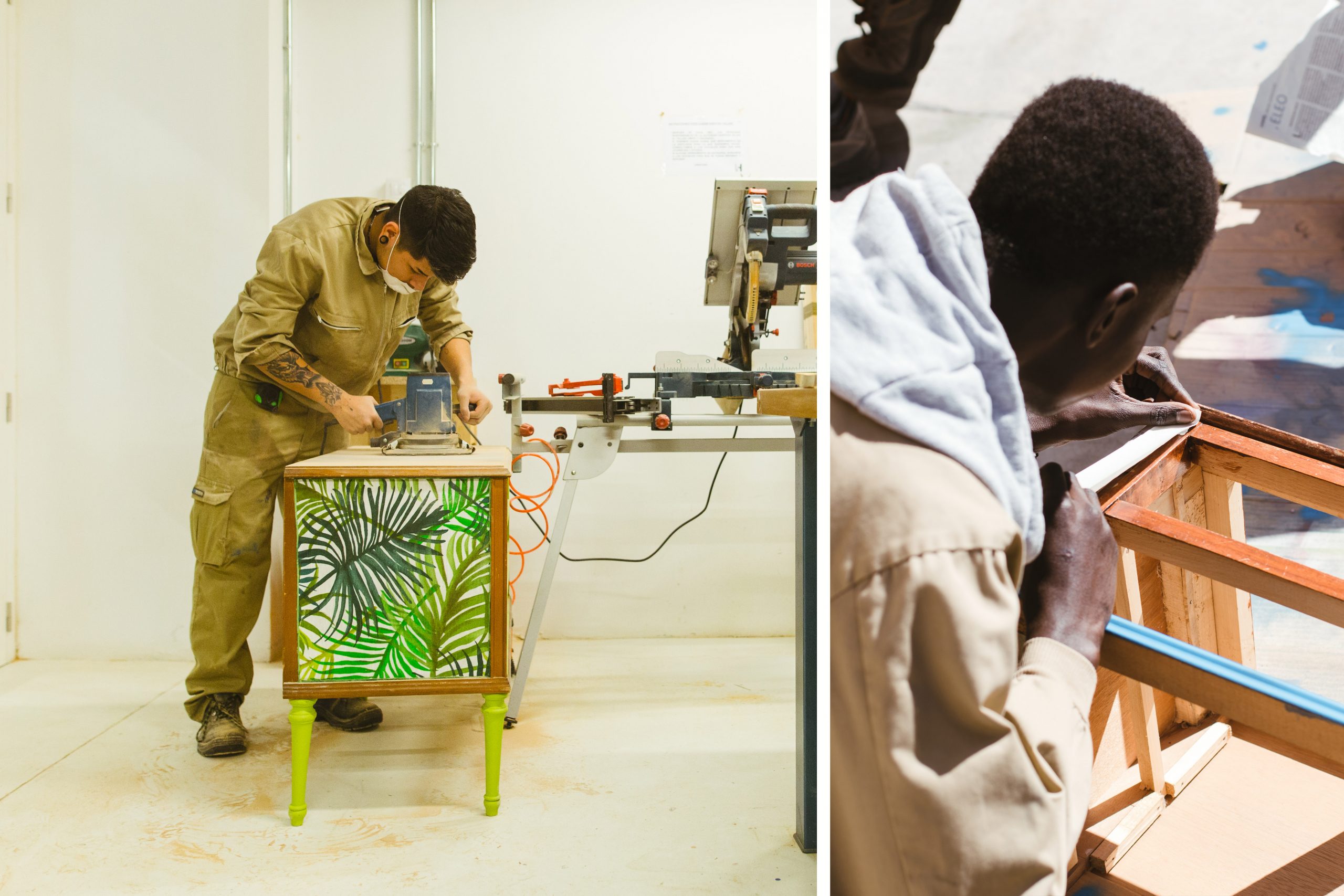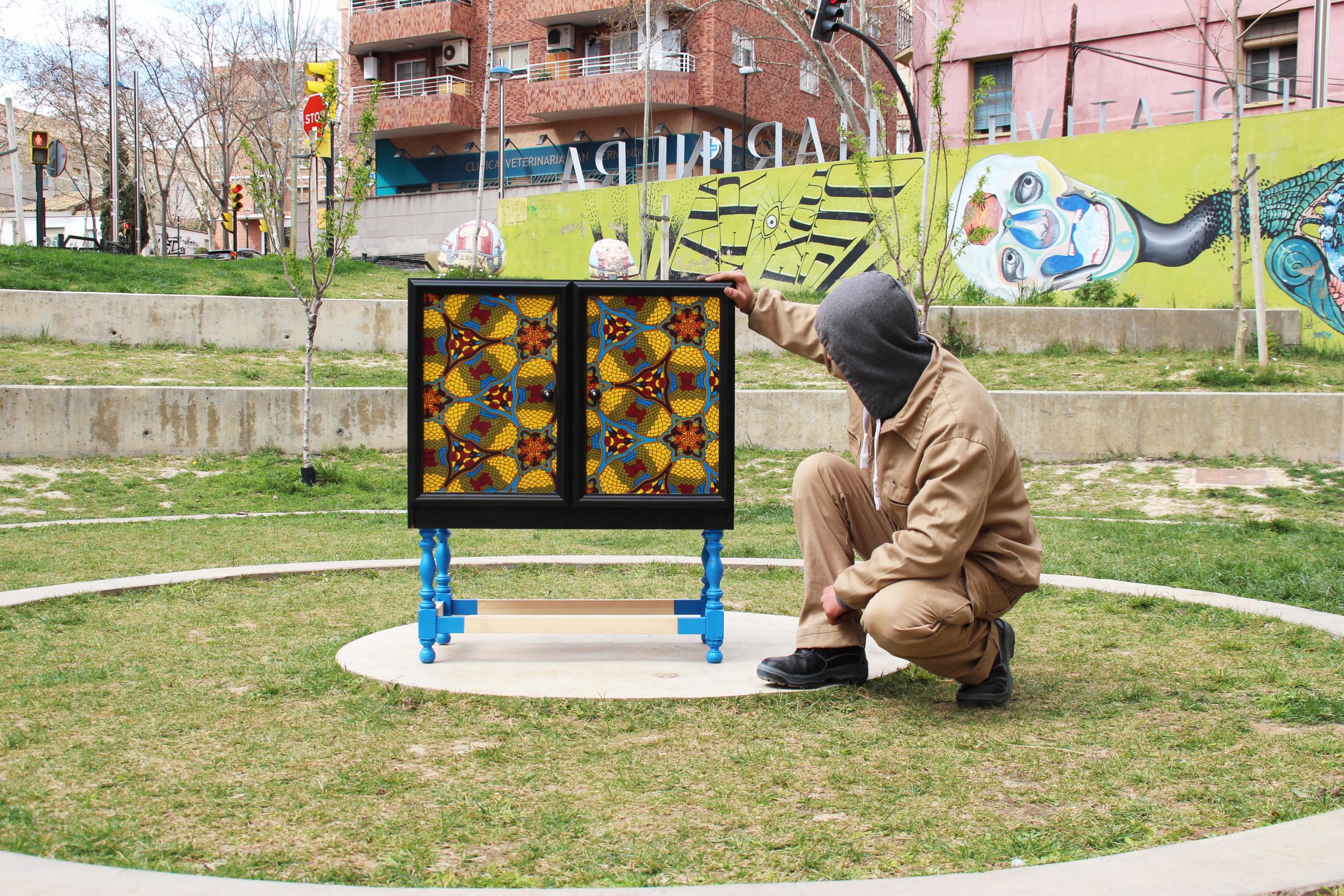Proyecto Transmuebles

Useful information
- Team members
- Recreando Estudio Creativo S. Coop. Harinera ZGZ Centro Socio-laboral de San José (Fundación Adunare) Tranviaser (Fundación El Tranvía)
- Country
- Spain
- Keywords
- Upcycling social inclusion sustainability creative process customization young people transformation furniture circular economy
Short Description
Creative project based on customization of disused furniture developed by young disadvantaged people
Detailed Description
Proyecto Transmuebles is the result of an alliance of social entities based on sustainability, inclusion, creativity and circular economy. Is an initiative in which, through upcycling and an environment that encourages sharing and participation, the creative skills of young disadvantaged people are enhanced. The project created and coordinated by Recreando Estudio was born in 2016, thanks to the impulse of the creative space Harinera ZGZ, a recognized cultural community space in Zaragoza. Since then and after 5 editions, we have accompanied more than 50 young carpintery students from the socio-laboral project, with the upcycling of more than 30 pieces of furniture loaned by the social insertion company Tranviaser. The customization of the furniture is carried out through a series of workshops in which the participants design, create, and collaborate together experimenting creative techniques. The resulting furniture goes on sale and the money obtained revert enterily on the project.
Project Details
- Does your design take social and cultural challenges and human wellbeing into consideration?
Proyecto Tranmuebles addresses several challenges that we as a society should face out: inclusion and sustainability.On the one hand, the users of the workshops are young people, both girls and boys who, either because of their origin, their social status or their abilities, are disadvantaged or at risk of exclusion. With this project we try to empower their creative side, and provide them with knowledge and skills based on doing and collaborating, facilitating spaces where they have voice, they can decide and create being accompanied in the process. In this way we try to empower these young people starting from the object scale, and showing them creative and participatory methods they can practice on a vital scale. Another important challenge that the project tries to face is sustainability, and it does so by encouraging reuse, even opening up job possibilities related with upcycling and extending the life of disused furniture. In this way, by taking care of the environment we are also taking care of the people who live in it, and by extending the useful life of objects we are promoting a more respectful and conscious model of consumption, while at the same time encouraging creative and hand-made work we are giving value to the processes.
We also attend to the recovery and the value of craft work, making the participants have the opportunity to leave their mark in some way at the furniture they are transforming, as formerly did the artisans, recognizing their work and putting it in value.
- Does your design support sustainable production, embodying circular or regenerative design practices?
Sustainability is a key factor in Proyecto Transmuebles, just because we extend the life of furniture that have been thrown away transforming it by applying creativity, design and participation. We also take this aspect into account with the choice of materials used for the transformation, seeking to ensure that they are natural and from local suppliers. We try to use respectful and safe techniques, without toxic and harmful products for health and for environment. It is also important to highlight the circular nature of Proyecto Transmuebles, not only in the recuperation of furniture but also in the economic aspect, because the sale of the customised furniture reverts to the project, making it possible for more and more young people to participate in the experience and the transformation.
- Does your design use principles of distribution and open source?
The contribution of Proyecto Transmuebles to open source is linked to the development model of the project. Being consequent with the sustainable character of the initiative and attending to ecological footprint criteria, the resulting furniture of the workshops is not put on sale at international level. Nevertheless Proyecto Transmuebles has a vocation for openness, and we are working to share our methodology so this project can be developed in any corner of the world and with different colectives. Along these lines, we have recently apply the project "e/co/creative pedagogies" to the Erasmus+ calls to make our work methodology known, and mainly the one we develop in Proyecto Transmuebles, with European youth workers with the intention of providing tools for the development of creative-participatory projects all across Europe. A pending subject we are working on is to share our methodology on the digital environment, facilitating the expansion and dissemination of ProyectoTransmuebles worldwide.
- Does your design promote awareness of responsible design and consumption?
ProyectoTransmuebles focuses on promoting reuse, on working through participation to extend the useful life of objects and therefore contribute to a more responsible and conscious consumption. Furthermore, we do it with the help of young people who have grown up in the throwaway model, so the impact of the project is greater, because besides transforming furniture we try to transform looks, bringing the world of sustainable, responsible and conscious design closer to the young people of today. On the other hand, the workshops we carry out try to raise awareness not only among the young people who participate, but also among the people who take them home, making them participate in another way of consuming, in which the process and the history of the furniture has a much greater value than those manufactured in series. And finally, from the dissemination of the project we seek to show alternatives of consumption, giving an example of how anyone can develop their creative skills to transform objects in disuse, providing emotional and experiential value.
Images


